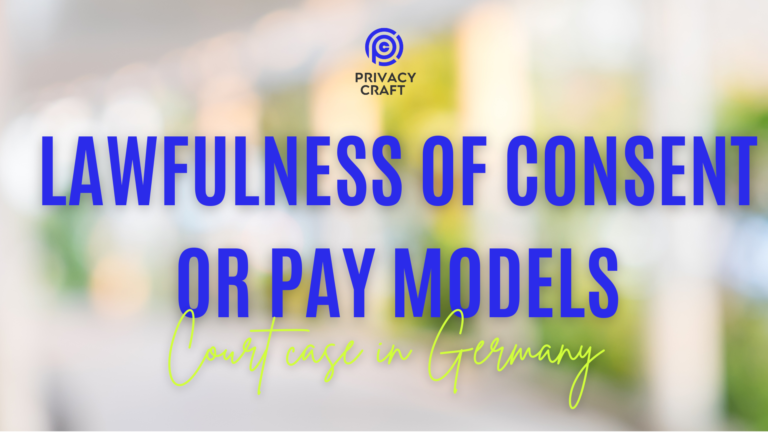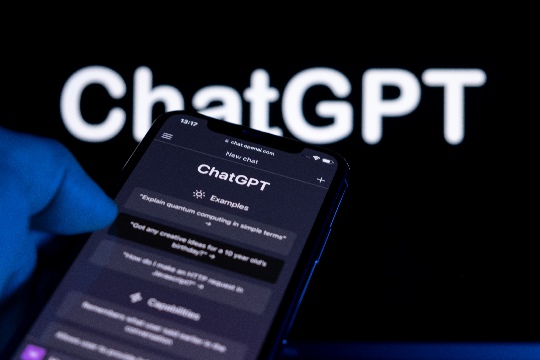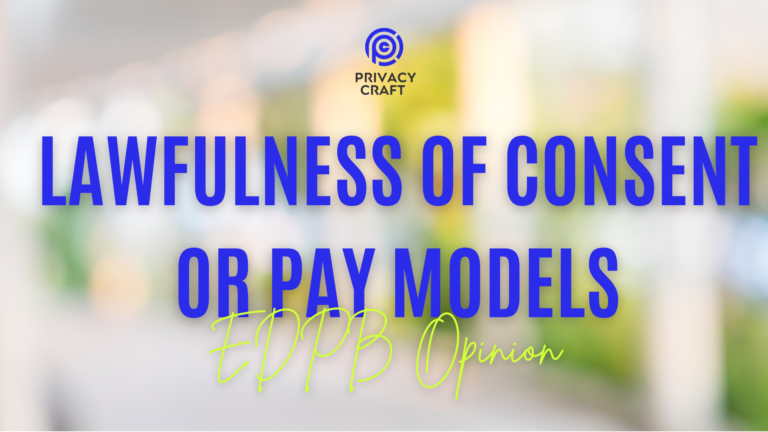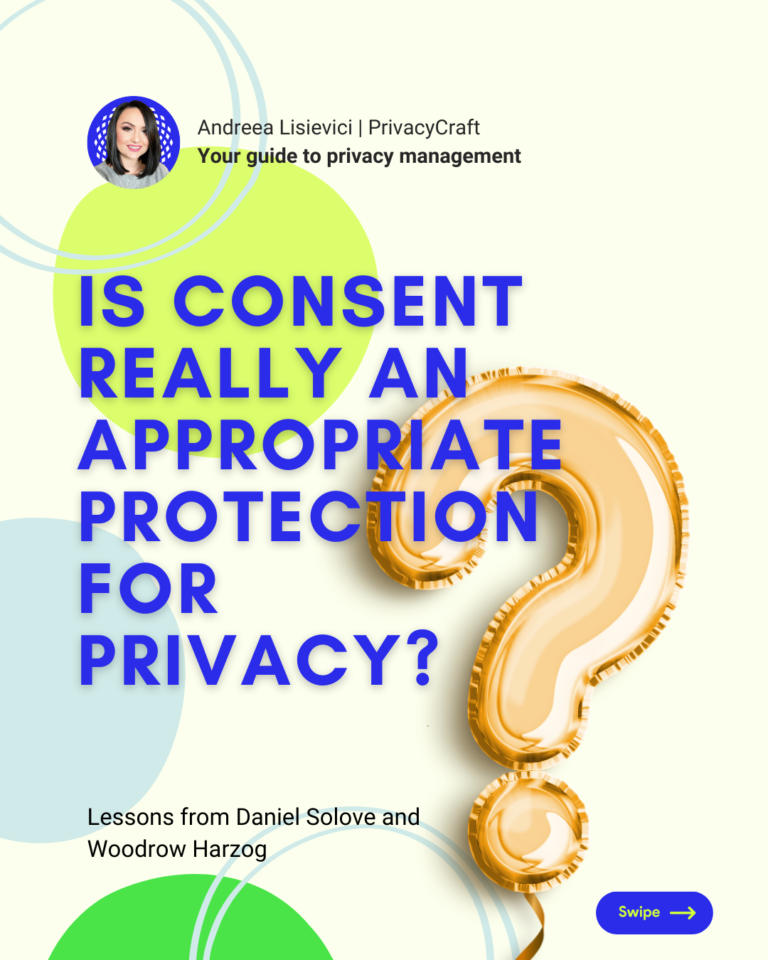German Court Decision Contrasts with EDPB Stance: Regensburg Court Validates Meta’s “Consent or Pay”
Remember the EDPB draft opinion on Meta’s “consent or pay”? If not, read here my summary. Well that one was published on 17 April, but I came across a court decision from 15 April, in Germany, also on “consent or pay”. Spoiler alert: the arguments don’t totally match, and the conclusion is entirely different! Here’s […]



